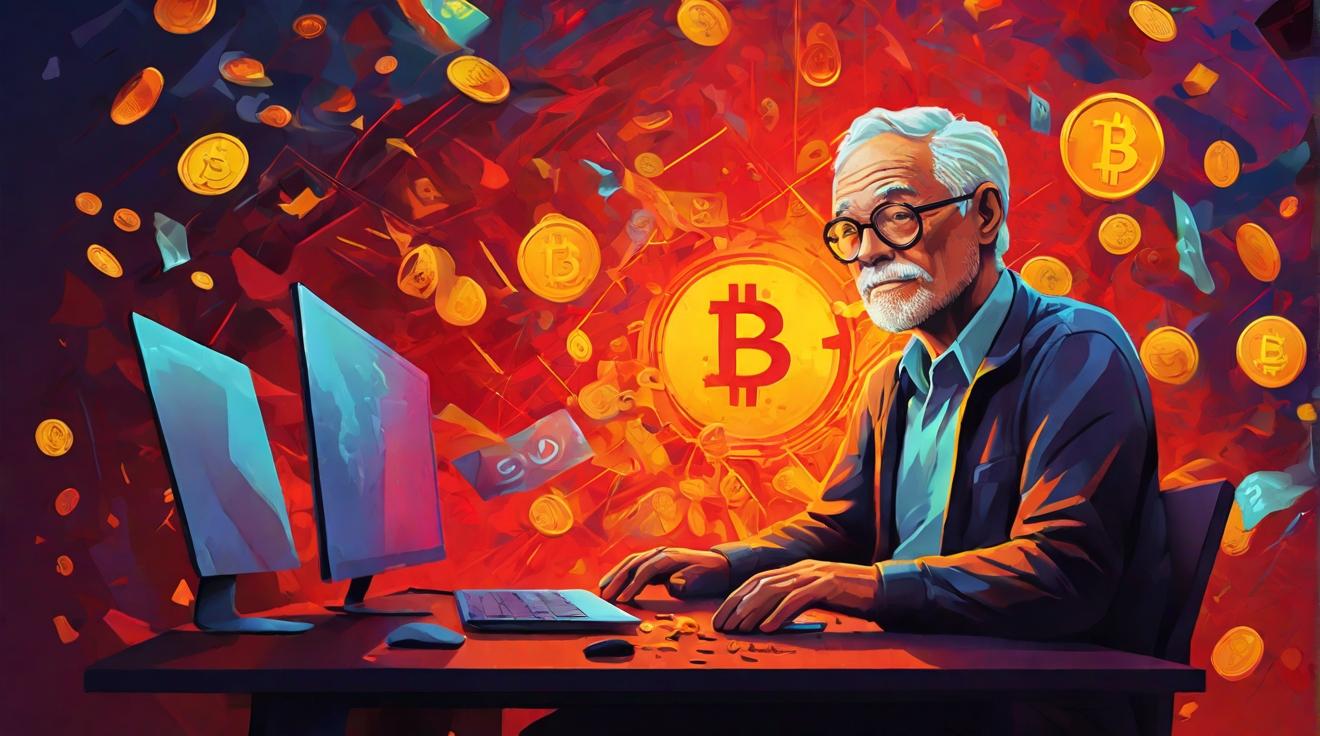===INTRO:
The world of finance has been undergoing a significant transformation in recent years, thanks to the rise of blockchain technology. One area that has seen significant growth is decentralized exchanges (DEXs), which are revolutionizing the trading landscape. Unlike traditional centralized exchanges, DEXs operate on a peer-to-peer network, allowing users to trade directly with one another without the need for intermediaries. In this article, we will explore how DEXs are changing the way we trade, their benefits, potential challenges, and the future of decentralized trading.
The Rise of Decentralized Exchanges (DEXs)
Decentralized exchanges have gained popularity due to their ability to offer greater privacy, security, and transparency to traders. These exchanges operate on blockchain technology, which means that transactions are recorded on a public ledger that is immutable and transparent. This eliminates the need for a centralized authority to oversee and facilitate trades, giving users more control over their funds and reducing the risk of hacks or manipulation. As a result, DEXs have become an attractive alternative to centralized exchanges, which have been plagued by security breaches and regulatory issues.
How DEXs are Revolutionizing the Trading Landscape
One of the key ways in which DEXs are revolutionizing the trading landscape is by eliminating the need for intermediaries. Traditional exchanges rely on intermediaries such as brokers or clearinghouses to facilitate trades, which can slow down the process, increase costs, and introduce counterparty risk. DEXs, on the other hand, allow users to trade directly with one another, reducing the need for intermediaries and streamlining the trading process. This not only makes trading faster and more efficient but also reduces costs and enhances liquidity.
Another way in which DEXs are revolutionizing trading is by enabling the trading of a wider range of assets. Traditional exchanges typically only support the trading of well-established cryptocurrencies such as Bitcoin and Ethereum. However, DEXs have opened up opportunities for the trading of a wide range of tokens, including those issued in Initial Coin Offerings (ICOs) or decentralized finance (DeFi) projects. This has democratized access to investment opportunities and created a more inclusive trading environment.
Exploring the Benefits of Decentralized Exchanges
There are several benefits to using decentralized exchanges. Firstly, DEXs offer greater privacy as they do not require users to provide personal information or undergo Know Your Customer (KYC) procedures. This appeals to users who value their privacy and wish to trade anonymously. Secondly, DEXs provide enhanced security as funds are not held in a centralized wallet or custodian. Instead, users retain control of their private keys and trade directly from their wallets, reducing the risk of hacks or theft. Lastly, DEXs offer increased transparency as all transactions are recorded on the blockchain and can be audited by anyone. This ensures that trades are fair and transparent, reducing the risk of market manipulation.
The Potential Challenges of Using DEXs
While DEXs offer many advantages, they also face certain challenges. One of the main challenges is scalability. As DEXs operate on blockchain networks, they are limited by the scalability constraints of the underlying technology. This can result in slower transaction speeds and higher fees during periods of high demand. Another challenge is the lack of regulatory oversight. Unlike centralized exchanges, DEXs operate in a regulatory gray area, which can make them more susceptible to illicit activities such as money laundering or market manipulation. Lastly, the user experience of DEXs is still not as user-friendly as centralized exchanges, which can deter less tech-savvy traders from using them.
The Future of Trading: Embracing Decentralization
Despite the challenges, the future of trading seems to be heading towards decentralization. As blockchain technology continues to evolve and overcome scalability issues, DEXs are expected to become more efficient and user-friendly. Regulatory frameworks are also being developed to provide clarity and ensure the safe operation of DEXs. Moreover, the increasing interest in decentralized finance (DeFi) and the growing demand for peer-to-peer trading are driving the adoption of DEXs. With the benefits of privacy, security, and transparency that DEXs offer, it is likely that decentralized exchanges will play a significant role in the future of trading.
===OUTRO:
Decentralized exchanges are ushering in a new era of trading, providing users with greater control over their funds, enhanced privacy and security, and a wider range of trading opportunities. While challenges such as scalability and regulatory oversight exist, the potential benefits far outweigh the risks. As blockchain technology continues to advance and regulatory frameworks are established, DEXs are poised to become the go-to platform for traders seeking a decentralized and inclusive trading environment. The future of trading is decentralized, and DEXs are at the forefront of this revolution.













